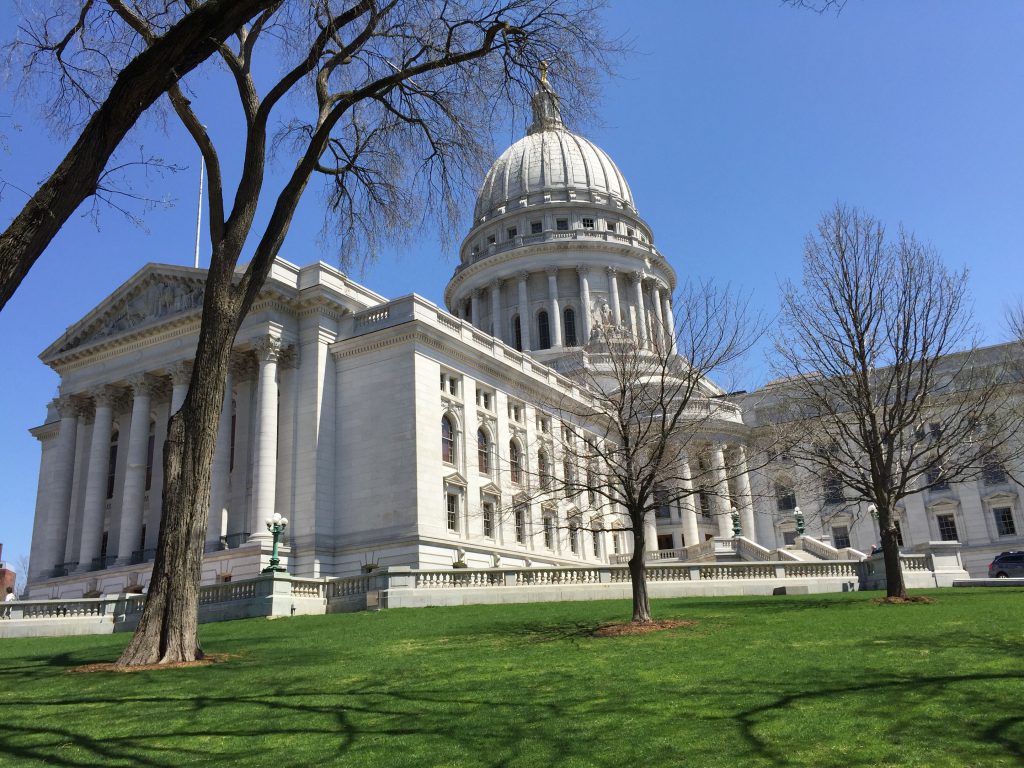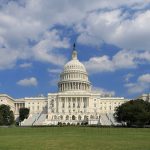Lessons of the Pandemic
It’s exposed weaknesses in Wisconsin that legislators must address after the crisis ends.
There’s no way around it – COVID-19 is one of the single worst disasters our state, country, or world have ever faced. But at the same time, it gives us an important window into how we can improve our systems moving forward. Undoubtedly, the coming weeks will present challenges – some known, some unforeseen – but it will also give us a chance as a community to come together, step up to the challenge, and seize the unique opportunities to make our lives and our future better.
We may be in for a long haul, but we will undoubtedly make it through this together. We as Wisconsinites are resilient, we are capable, and we are strong. Despite the difficulties we have endured so far, despite the difficulties yet to come, we will make it through this crisis.
Throughout our history, moments of crisis like this have also provided critical moments of clarity. From Shays’ Rebellion, to the Civil War, to the Great Depression, to the Cold War, to the Great Recession, difficult and painful moments have given us the opportunity to take stock of what got us to where we are, and to use hindsight to implement new policies that will either prevent similar crises from happening in the future, or will soften the blows should another crisis come to pass.
I recognize that we are in the middle of a storm, and it’s hard to think past the rain and winds right now. But the storm will pass, and we must start thinking towards how we can make that future a better one. Three specific policy initiatives come to mind: two directly related to the health of Wisconsinites, and a third related to the health of our democracy.
Second, we need to expand Medicaid in Wisconsin. The COVID-19 crisis has not only put a spotlight on the necessity of widespread access to quality healthcare, it has also shown us the need to take advantage of all financial opportunities presented to us as a state. Just last month, we as legislators were debating how to spend a significant projected budget surplus, and now look where we are – not only is that projected surplus set to be considerably lower than we originally anticipated, but our state is also likely to need to tap into at least some of those funds in order to properly respond to this outbreak. In a moment like this, how valuable would the federal dollars resulting from Medicaid expansion be? Those added funds would have lessened some of the fiscal pressure that our state is now facing, and may have allowed us to pursue more robust economic responses than will be possible now. How valuable would the expanded access to healthcare be? In moments of public health crisis like this, a society is only as protected as its least well-cared-for citizens – with greater access to quality healthcare for more people, how many severe illnesses from COVID-19, exacerbated due to untreated underlying health conditions, could be avoided? We can do better, and we must do better.
Finally, this crisis has proven the need to build up our electoral process into a more robust system. In a typical election year, too many people already face structural barriers that limit their access to the polls – but the COVID-19 outbreak has shown us that 2020 is going to be anything but a “typical election year.” Already, we have seen disrupted or delayed elections in other states, and Wisconsin has been placed in a terrible position where we as a state have to weigh the health and safety of our voters and poll workers against the need to provide timely, democratic representation for our citizens. But practices employed by other states show that, with a simple fix, we would never have to face this kind of dilemma again. Instead, we can and should move towards conducting our elections entirely by mail. Already, five states across the political spectrum (Oregon, Washington, Colorado, Utah, and Hawaii) conduct their elections fully by mail, and numerous other states including California, North Dakota, Minnesota, Nebraska, and Maryland have either begun to roll out vote-by- mail elections, or have implemented pilot programs testing out postal voting. If Wisconsin were to implement postal voting, we would be insulated from the public health concerns about voting during a pandemic, and we would also likely see significant secondary benefits – where postal voting has been implemented in the US, jurisdictions see noticeable upticks in voter participation, and some states have even seen significant cost savings over traditional elections.
These are just three smart, helpful public policy responses to the COVID-19 crisis and I will be working on getting them done during this tough time so we can be in a better position moving forward. And as we move forward together we should be looking for other ways to improve things after this storm passes. When that happens, it is incumbent upon us as a society to make sure that we are not only prepared to survive any future storms, but to thrive in spite of them.
Rep. Jonathan Brostoff represents the 19th State Assembly District in the city of Milwaukee.
More about the Coronavirus Pandemic
- Governors Tony Evers, JB Pritzker, Tim Walz, and Gretchen Whitmer Issue a Joint Statement Concerning Reports that Donald Trump Gave Russian Dictator Putin American COVID-19 Supplies - Gov. Tony Evers - Oct 11th, 2024
- MHD Release: Milwaukee Health Department Launches COVID-19 Wastewater Testing Dashboard - City of Milwaukee Health Department - Jan 23rd, 2024
- Milwaukee County Announces New Policies Related to COVID-19 Pandemic - David Crowley - May 9th, 2023
- DHS Details End of Emergency COVID-19 Response - Wisconsin Department of Health Services - Apr 26th, 2023
- Milwaukee Health Department Announces Upcoming Changes to COVID-19 Services - City of Milwaukee Health Department - Mar 17th, 2023
- Fitzgerald Applauds Passage of COVID-19 Origin Act - U.S. Rep. Scott Fitzgerald - Mar 10th, 2023
- DHS Expands Free COVID-19 Testing Program - Wisconsin Department of Health Services - Feb 10th, 2023
- MKE County: COVID-19 Hospitalizations Rising - Graham Kilmer - Jan 16th, 2023
- Not Enough Getting Bivalent Booster Shots, State Health Officials Warn - Gaby Vinick - Dec 26th, 2022
- Nearly All Wisconsinites Age 6 Months and Older Now Eligible for Updated COVID-19 Vaccine - Wisconsin Department of Health Services - Dec 15th, 2022
Read more about Coronavirus Pandemic here
Op-Ed
-
Wisconsin Candidates Decry Money in Politics, Plan to Raise Tons of It
 Dec 15th, 2025 by Ruth Conniff
Dec 15th, 2025 by Ruth Conniff
-
Trump Left Contraceptives to Rot; Women Pay the Price
 Dec 8th, 2025 by Dr. Shefaali Sharma
Dec 8th, 2025 by Dr. Shefaali Sharma
-
Why the Common Council’s Amended Budget is Good Policy for Milwaukee
 Nov 20th, 2025 by Alds. Marina Dimitrijevic and Russell W. Stamper, II
Nov 20th, 2025 by Alds. Marina Dimitrijevic and Russell W. Stamper, II























Thank you Rep. Brostoff. These are common sense and reasonable proposals. I suspect most Wisconsin residents agree with these proposals. Unfortunately, there are two who don’t; Vos and Fitzgerald. They believe they know better than the constituents who pay their salary. They are bullies who believe they alone know what’s right. Until we rise up against the bullies, this state will continue to wallow economically while neighboring states pick our bones.